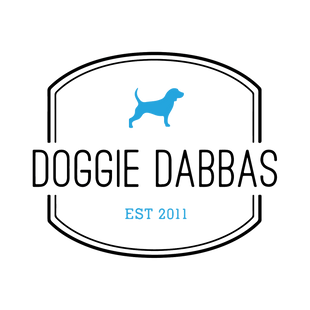Unlocking the Secrets of Pet Nutrition
Why It's Time to Ditch “Just Chicken and Rice Meal?”
Hello, fellow pet parents and dog lovers!
Do you feed your furbaby the same old chicken and rice every day? Sure, it's a classic go-to meal, but is it really the best option for them? While this meal may seem like a quick and easy solution, it’s not providing all the necessary nutrients to keep your pup healthy and happy. As a pet parent, it’s important to understand the importance of a well-balanced diet for your furry companion.
A well-balanced diet is essential for your furbaby’s overall health and longevity. It provides them with the necessary nutrients, vitamins, and minerals to support their immune system, maintain healthy skin and coat, and keep their organs functioning properly. Let’s dive into what makes a balanced diet, what foods to avoid, and how to ensure your furbabies are getting all the nutrients they need.
So, grab a bowl of water for your pup, and let’s dig in!
- Protein Requirements: Why Animal-Based Proteins are Best
Protein is a crucial component of a dog's diet, and it should make up the bulk of their food. Dogs are carnivorous animals, and they require high-quality animal-based proteins. When selecting protein sources, it's essential to choose a variety of meats, including organ meat, to provide your dog with the necessary amino acids. Rotating proteins can also help prevent sensitivities or allergies to a specific protein source.
- Essential Fatty Acids: The Importance of Omega Balance
Dogs require essential fatty acids like Omega-3 and Omega-6, which play a vital role in their overall health. While chicken is an excellent source of protein, it's higher in Omega-6 fatty acids and lower in Omega-3 fatty acids. This imbalance can cause inflammation in your dog's body. Adding essential fatty acids like fish oil can help balance your dog's diet and support their immune system, skin, and coat health. Dogs in general with no health issues benefit with a moderate to low level fat value in their diets. Not all fat is bad fat! But too much fat is definitely not advised.
- Bones: The Nutritional Powerhouses You Don't Want to Miss
Bones are a vital component of a dog's diet, providing essential nutrients like calcium, phosphorus, and other trace vitamins and minerals. Raw bones are the best option as they also help with dental health, but be cautious about the size of the bone to avoid any choking hazards. Cooked bones should never be given to dogs as they can splinter and cause serious harm. If you're unable to give raw bones, a bone meal powder can be a good alternative.
- Carbohydrates: What You Need to Know About Grains
While dogs don't have a nutritional requirement for carbohydrates, some dogs may benefit from a small amount of grains or complex carbohydrates in their diet. However, it's essential to choose high-quality sources of carbohydrates like vegetables, as grains can cause health issues like diabetes, blood sugar fluctuations, and obesity. It's also important to note that carbs like rice expand when cooked, while proteins shrink in weight. So be mindful of the amount of carbohydrate you are adding to your dog’s meal. Carbs are not all bad! You just need to be very aware of the ratio of carb to protein in your dogs diet.
Prioritizing Your Pet's Health with a Balanced Diet
Feeding your furbabies a well-balanced diet with a variety of proteins, essential fatty acids, bones, and high-quality carbohydrates is essential to support their overall health and longevity. By consulting with your nutritionist and incorporating nutrient-rich foods into your pet's diet, you can help ensure they live a long, happy, and healthy life.
And as always, don’t forget to give them plenty of love, attention, and belly rubs along the way. Follow these tips and ensure your furbabies gets the nutrition they need to thrive.


